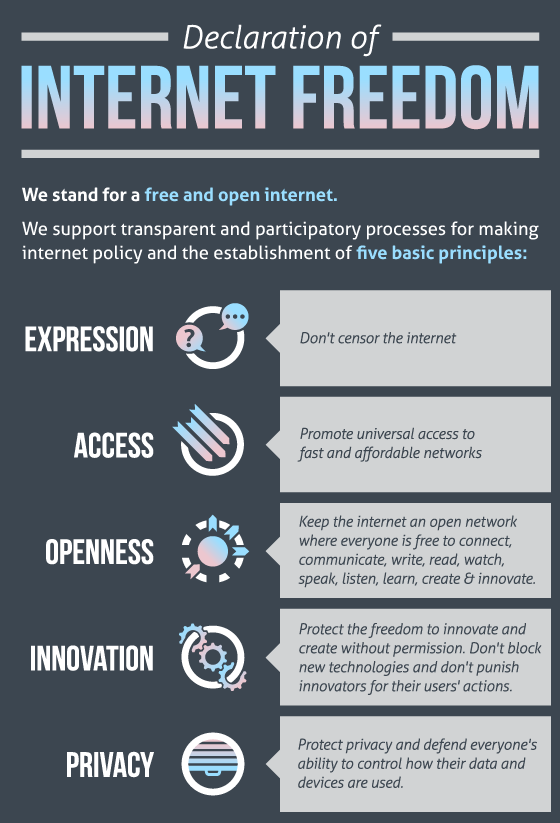....the catastrophic prophecies of climate disaster require an essential ingredient that all too often is completely missing in debates on the subject: positive water vapour feedback. Without increasing amounts of water vapour in the atmosphere (being a much more powerful GHG than CO2), allegedly as a result of human contributed CO2 (in reality, something that could be caused by any heating mechanism), then any catastrophic predictions are bunk. Period.

(Click for larger version)
Over 50 years of data with no sign of the fabled feedback.
And yet
we continue to do this to ourselves.
When enough people forced into penury and suffering realise the source of their misery, email death threats are going to be the last thing the catastrophist "scientists" will have to worry about.
 (Click for larger version)
(Click for larger version)







22 comments:
Did you see this one in the Telegraph today?
Seems like everyone is waking up to the fact it's getting chilly
http://blogs.telegraph.co.uk/news/jamesdelingpole/100055500/global-cooling-and-the-new-world-order/
And of course here is the link!
Thanks SAOT. I did see that when Delingpole first mentioned it, though wasn't sure how seriously to take the website that he was citing from.
On the issue of possible - and much more frightening - Global Cooling in our lifetimes, I found this post by J. Storrs-Hall absolutely terrifying. On the upside though it really does put the "unprecedented warming" into a context of complete irrelevance.
I googled about this and found conflicting data regarding positive vapor feedback. Seems some say there is PWVF and others say there isn't. Either way, I don't think the damage other greenhouse gasses do is negated due to the lack of the more damaging water vapor. It seems like you're saying that just because you weren't shot in the face with a shotgun, a 38 cal pistol isn't going to kill you.
I'm not saying you're wrong or right I'm just saying, that I see just as much evidence for and against on this and so many other aspects of this issue. I don't trust politicians of any party, in any government, nor do I trust execs in any corporation to tell the truth. Scientists are not immune from corruption, either, so I am always skeptical of them, too. So, please don't assume I've "gone over to the dark side" just because I don't agree with your conclusions here.
My ultimate conclusions on this are the same as with everything else--as long as money trumps all, the human race is fucked. Arguing about specifics like global warming being man-made or not seems like rearranging the chairs on the Titanic.
All that aside: Glad to see ya blogging again! Sorry I've not kept up/kept in touch! Hope you're well, man!!
Completely missing in debates? Water vapour feedback is by far the largest reason why the spread of uncertainties is so large.
You're right, of course: without the feedbacks, the forcing effects of co2 will be much lower - and most challenges to us warmists these days come from this angle of arguing for lower sensitivity.
I'm presuming you're in agreement that co2 is a greenhouse gas? You say the extra water vapour "could be caused by any heating mechanism" - which confuses me. I thought your point was, there isn't any extra water vapour? Or is it that whatever extra water vapour there is, ain't anything to do with co2? It does at least suggest you're happy with "heating = more water vapour" and "water vapour is the most important greenhouse gas"?
I've got my own thoughts, but I'd really like to hear yours. What does this graph mean, in terms of the physics?
This is a nice overview piece from Science Daily. Satellite measurements appear to have detected an increase through all atmospheric levels. Are you saying these could be just noise? If so, how do you explain the *lack* of extra water vapour due to the extra co2 forcing? (Or, again, am I wrong to assume you accept co2 is causing any forcing?)
Lastly, what's the source for your graph?
"On the issue of possible - and much more frightening - Global Cooling in our lifetime..."
I'd also be interested to hear more on why you think cooling is much more frightening (and presumably more plausible than the opposite?)
Also also: "When enough people forced into penury and suffering realise the source of their misery, email death threats are going to be the last thing the catastrophist 'scientists' will have to worry about."
Meaning what?
These are good.
science of doom 1
science of doom 2
p.s. would really like to know where your graph came from.
What chance global cooling, do you think?
I'll just carry on posting regardless! Please do tell me to nob off if you'd prefer I didn't.
Been looking at your tags, 'corruption, ecofascism, fuckwits, intimidation, lying obfuscating politicians, media silence, politicised science' and that comment about death threats being the least of scientists' worries, which I took to mean, they could look forward to a public lynching - correct me if I'm wrong. It made me think we maybe have a looong way to go before we can get close to talking about "just the facts ma'am". The scale of the difference to how we view publicly-funded science is so vast, I'm not sure how to start bridging it.
So to back off slightly: who do you think could do science that you could actually trust? What data sources would you trust? You've said before that publicly funded scientists are just as likely to be shilling as any private funded scientist. So, how do you personally go about distinguishing people you trust from those you don't? Or do you have to mistrust anyone who's taking money from anyone else? (Which seems to rule everyone out of the picture.)
A hypothetical too: if the whole planet had arrived at whatever political condition would be your ideal, do you accept that there could still be damaging environmental problems, resulting from many people acting individually? If so, two questions: how would such problems be discovered or monitored? Who would pay for it, and how would those payments be made shill-proof? (i.e. how do create a way of checking the truth of results?) How would fixing any problems then be dealt with?
I want to find some common space where we can talk about this. You've posted a graph here: what makes you trust that, but not other results?
We both have underlying assumptions and biases, I'd like to try and bring these out a bit, to the extent they affect what scientific ideas we come to trust and why.
Or I could just carry on talking to myself, or just go away. Again, feel free to tell me to go away if I'm boring/annoying you.
Can't promise any in-depth responses before PhD is done, but I'll do my best.
James Higham said... "What chance global cooling, do you think?"
That link provided has some good stuff in it. (Blog-master, am I allowed to use your name on here?)
As far as I understand it, without any other human forcings, we would have been heading - very slowly - towards another ice age. This Nature paper on the Vostok cores is a good source: the period between ice-ages varies, and the time to the next one could be over 10,000 years, without any other forcing. At the very least, it would be thousands of years off.
The point is "without any other forcing". The most important graph from the link above, for me, is the one showing the relatively stable period of the Holocene; seeing what came before it, the Holocene has been an incredibly stable period in the Earth's history, during which human civilisation has flourished.
The Earth's climate is a complex system, and anything that pushes it about is going to have unpredictable consequences. This is the one reason I'm a, ahem, 'warmist': a chaotic system in a stable state is like a spinning top. We're poking the spinning top.
This is why arguing "it's uncertain" should be of no comfort to anyone. The stability of the Holocene will end some day, whether in 20,000 years or 500 years. But by pushing the climate system around, we may well help it on its way.
Here's NOAA's data on specific humidity.
As far as I understand it, without any other human forcings, we would have been heading - very slowly - towards another ice age.
Oh now - that is nice! Think I'll post on this.
Post up a link if you do!
Potholer on some of the recent ice-age stuff - different to the link here, though - with a graph of how much difference a full-on solar min activity phase would have.
The vid's got some good bits, but is regretfully rather over-sarcastic. Still, basic point: mini-ice-age stories don't come from the scientific literature. My own bit of sarcasm would be: another scientific story of the century? We've been having a lot of those.
Hello?
It's not often I read a series of irrational rants in a single comments section and think "what a complete tit".
Anonymous, if you're talking about me, please say so. Got anything constructive to add, or just insults?
Dan,
Katabasis can speak for himself, although I think he's busy in the real world, so in the meantime I shall address one of your questions from my point of view:
"if the whole planet had arrived at whatever political condition would be your ideal, do you accept that there could still be damaging environmental problems, resulting from many people acting individually?"
The main problem of environmental damage comes from an absence of property rights, or the failure of the legal system to uphold them.
Without such rights you get what is known as 'the tragedy of the commons', where everyone grabs what they can in the short term, with no incentive to preserve the value of something. A lumber company that owns a tract of forest will be sure to replant as it cuts down. It will not if it's a free-for-all.
From the time of the Industrial Revolution, courts stopped enforcing property rights with regard to pollution, on the grounds that it was for the 'general good' that we had factories belching out pollution into the air and the rivers. This meant not only an injustice to the people affected, but also, with a licence to pollute for the 'greater good', there wasn't an incentive to develop non-polluting technology.
The answer to many environmental problems is upholding property rights, and allowing them where they are currently not permitted. Then the polluter can be made to pay.
Comments have gone wampy... think I'll wait for a bit, see what happens.
Trooper Thompson: apols, my last comment was waay too long, I'd have to break it up into 3 chunks, thus annoying even more anyone subscribed to the thread. I've posted the full comment here if you can be bothered to wade through it. Short version: if I thought our choices for solving the tradegy of the commons were libertarianism or an all-powerful one-party state, I'd go for libertarianism. Who wouldn't? But they're not the only two options (even though Hardin seemed to think that was the case). That said, there's clearly a massive role for the sort of property rights you talk about.
Hope katabasis is getting on OK out there in the real world.
Some good to-and-fro on water vapour here, along the lines you're talking about. Search for "1948". I was trying to find that graph, searching for "total coumn water vapour levels since 1948".
Apols for using your post as a links bin. p.s. here's something we might agree on: read Pachauri recently claiming that writing a forward for a Greenpeace report didn't mean he was endorsing it. Right, so it'd be the same if he wrote a forward for Exxon's annual report then? Hmm...!
Post a Comment